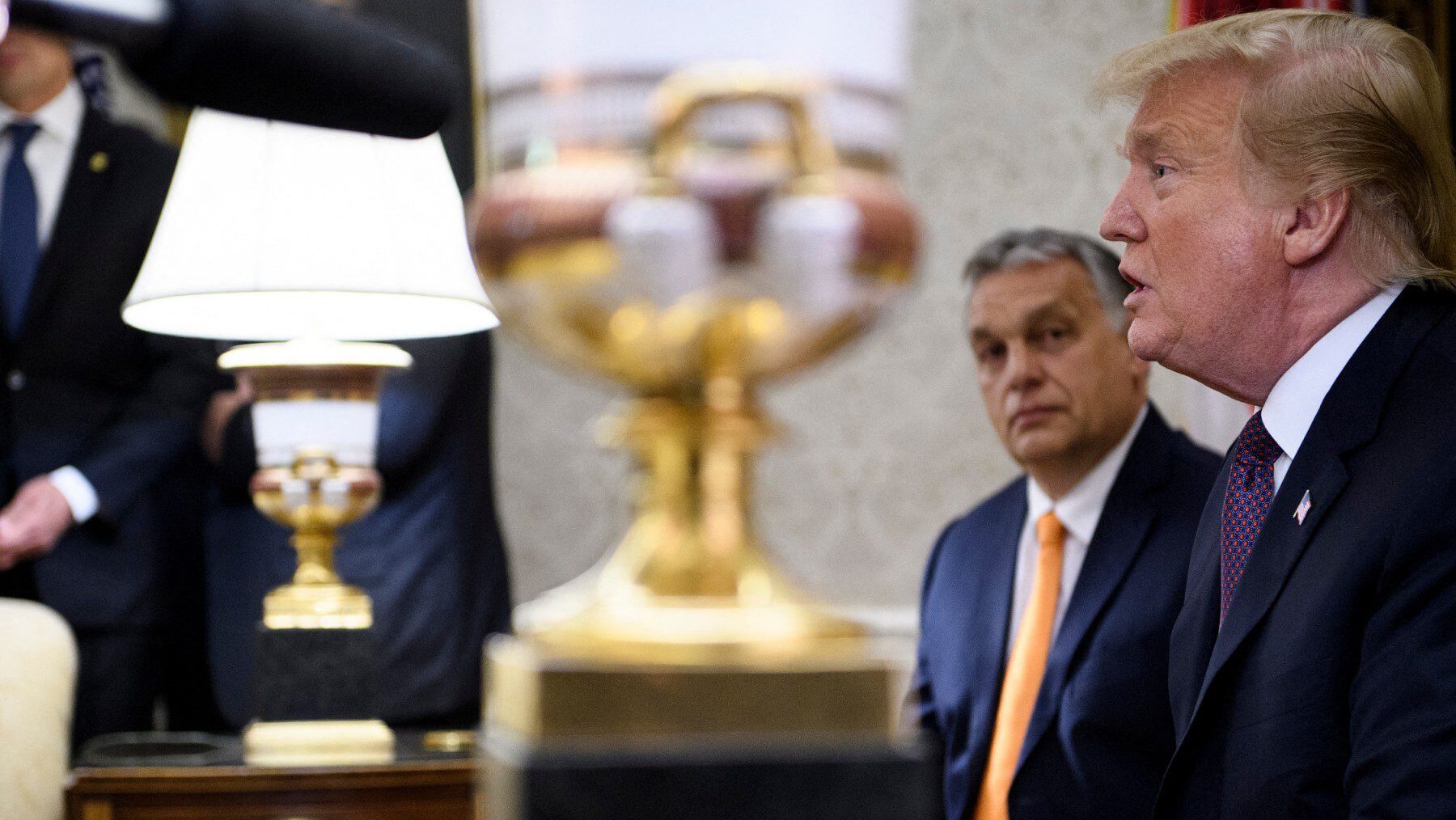
President Trump hosting PM Orbán in the White House, 2019.
Photo: Brendan Smialowski / AFP
A win for Donald Trump in Tuesday’s U.S. presidential election would open the door for eventual peace in Ukraine. It would also force Brussels to rethink its pro-war strategy, according to Hungary’s PM Viktor Orbán, who explained that Europe cannot bear the economic burden of the conflict alone.
Depending on the outcome at the ballot box, Wednesday’s European Political Community summit—an informal gathering of leaders of both current and aspiring European Union member states—in Budapest could primarily focus on how to adapt to this new reality of a pro-peace president sitting in the White House, Orbán said.
“Europe today can create war, but not peace,” Orbán said during a discussion with Germany’s ex-Chancellor Gerhard Schröder, another pro-peace politician, in Vienna last week:
We have only one hope: a decision will be made across the ocean in five days, which may bring, if not peace, but ceasefire at least.
“If what we expect happens and America becomes pro-peace, then Europe cannot remain pro-war,” the prime minister said later on Sunday:
Europe cannot bear the burden of [the war] alone, and if Americans switch to peace, then we also need to adapt, and this is what we will discuss in Budapest.
During the campaign, Trump has promised that he’s going to put an end to the war “in 24 hours” as President-elect. During his recent interview with Joe Rogan, the Republican nominee said he knows exactly how he would approach both Zelensky and Putin in order to facilitate a ceasefire agreement as soon as possible.
Had a great panel discussion yesterday with Chancellor Gerhard Schröder and @KoeppelRoger of @Weltwoche . My message was clear: bring back @realDonaldTrump and he will bring us peace! #WeltwocheOnTour pic.twitter.com/uNL9zBiSP7
— Orbán Viktor (@PM_ViktorOrban) November 1, 2024
Orbán has long been the most vocal proponent of ceasefire negotiations in Ukraine. He has opposed prolonging the conflict with endless arms deliveries that have yet to give Kyiv the edge over Moscow. He’s also warned against irrational energy sanctions against Moscow, which not only failed to dent Russia’s economy, but managed to significantly hurt Europe’s competitiveness.
Few EU governments share Orbán’s opinion even though it’s the most popular view among voters in the majority of EU countries now and pro-peace opposition parties are often the largest, such as National Rally in France or ANO in Czechia.
In an effort to gauge the political conditions for peace, Orbán went on a “peace mission” in July and met presidents Zelensky, Putin, and Xi—and Trump. He was immediately accused by Brussels of ‘appeasement’ of Putin and the ‘betrayal’ of European values, even as all three of his recommendations—talk to Russia; ask China to mediate; and involve the Third World in the peace process—have been followed by Kyiv ever since.
When Ukraine’s intention to conduct peace talks with Russia before the end of the year emerged, Orbán remarked in Vienna
The results that could be achieved have been reached because today in Europe we are talking about peace and ceasefire … Before the Hungarian presidency [of the European Council], this was not even a topic of discussion. This much we have achieved.”
Such results are hard to see while both Brussels and Washington are pushing Kyiv to continue the war, no matter the cost. That’s why the election of Trump, an outspoken proponent of immediate peace negotiations, could finally tip the scales toward change—both on the battlefield and the EU institutions.
